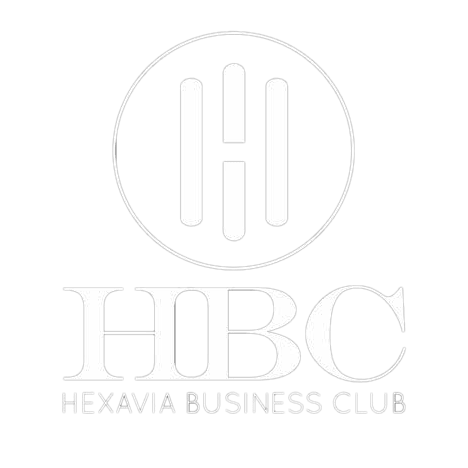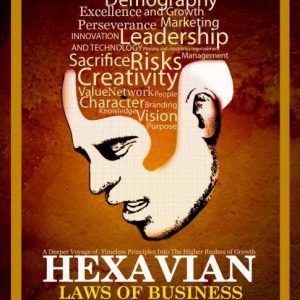Today I will like us to look at Warren Buffet and the company Berkshire Hathaway as a case study for great brands.
Warren Buffet is the Chairman of Berkshire Hathaway, an American multinational conglomerate holding company. They are the owners of Heinz ( I am sure we use the Salad Cream and ‘Ketchups’ on our dinner tables). But him and his company also has stakes also in The Coca-Cola Company, Wells Fargo, IBM, Restaurant Brands International, and shares in Apple. Berkshire Hathaway averaged an annual growth in book value of 19.7% to its shareholders for the last 49 years (compared to 9.8% from the S&P 500 with dividends included for the same period), while employing large amounts of capital, and minimal debt.
He is known as the Oracle of Omaha. He is known to only invest in brands that show disruptive tendencies to their industry, but what does Disruptive Strategy even mean and how can we all create one..? //Deleted, property of #BreakFastWithEizu//
Hathaway is a disruptor. As a clue, the world is in that phase with the likes of Ellon Musk, Richard Branson, Warren Buffet and co. A disruptive innovation is an innovation that creates a new market and value network and eventually disrupts an existing market and value network, displacing established market leading firms, products and alliances. It’s a set of new rules for market take over I share at our breakfast meetings. Back to Hathaway, the innovative disruptive company is known for its control and leadership by Warren Buffett, who is the company’s Chairman of the Board, President, and Chief Executive Officer, and Charlie Munger, the company’s Vice-Chairman of the Board of Directors. In the early part of Buffett’s career at Berkshire, he focused on long-term investments in publicly traded companies, but more recently he has more frequently bought whole companies. Berkshire now owns a diverse range of businesses including confectionery, retail, railroad, home furnishings, encyclopedias, manufacturers of vacuum cleaners, jewelry sales, newspaper publishing, manufacture and distribution of uniforms, and several regional electric and gas utilities.
According to the Forbes Global 2000 list and formula, Berkshire Hathaway is the fourth largest public company in the world, and the 9th largest conglomerate by revenue.
But let’s take a closer look at the dynamics of Berkshire Hathaway. It wasn’t started by Warren Buffet. It started off almost a century before as a Textile Mill and company. It was almost ran aground before the mid 20th century when he came in. In 1962, a young Warren Buffett began buying stock in Berkshire Hathaway after noticing a pattern in the price direction of its stock whenever the company closed a mill. Eventually, Buffett acknowledged that the textile business was waning and the company’s financial situation was not going to improve.
In 1964, Stanton made an oral tender offer of $11 1⁄2 per share for the company to buy back Buffett’s shares. Buffett agreed to the deal. A few weeks later, Warren Buffett received the tender offer in writing, but the tender offer was for only $11 3⁄8. Buffett later admitted that this lower, undercutting offer made him angry. Instead of selling at the slightly lower price, Buffett decided to buy more of the stock to take control of the company and fire Stanton (which he did). However, this put Buffett in a situation where he was now majority owner of a textile business that was failing.
Buffett initially maintained Berkshire’s core business of textiles, but by 1967, he was expanding into the insurance industry and other investments. Berkshire first ventured into the insurance business with the purchase of National Indemnity Company. In the late 1970s, Berkshire acquired an equity stake in the Government Employees Insurance Company (GEICO), which forms the core of its insurance operations today (and is a major source of capital for Berkshire Hathaway’s other investments). In 1985, the last textile operations (Hathaway’s historic core) were shut down.
In 2010, Buffett claimed that purchasing Berkshire Hathaway was the biggest investment mistake he had ever made, and claimed that it had denied him compounded investment returns of about $200 billion over the subsequent 45 years. Buffett claimed that had he invested that money directly in insurance businesses instead of buying out Berkshire Hathaway (due to what he perceived as a slight by an individual), those investments would have paid off several hundredfold.
Whether life or business , intuition, grit and consistency is key. To me, grit is perhaps the most important factor here.
Grit is a distinct combination of passion, resilience, determination, and focus that allows a person to maintain the discipline and optimism to persevere in their goals even in the face of discomfort, rejection, and a lack of visible progress for years, or even decades.
Its painful to see brilliant and nice people fail. I used to wonder why. But according to study after study, the truth is, people who are smart, talented, kind, curious, and come from stable, loving homes, generally don’t succeed if they don’t know how to work hard, remain committed to their goals, and persevere through struggles and failure. It’s something we all can work on, starting from now.



